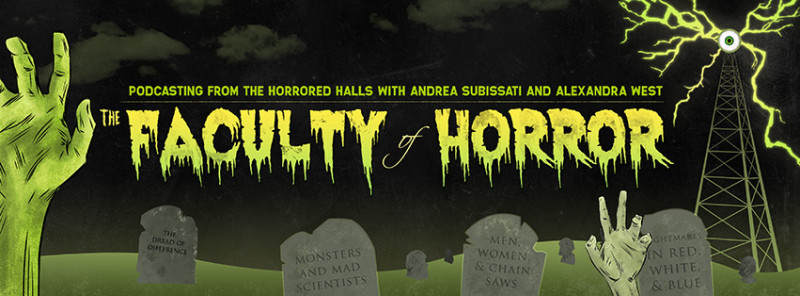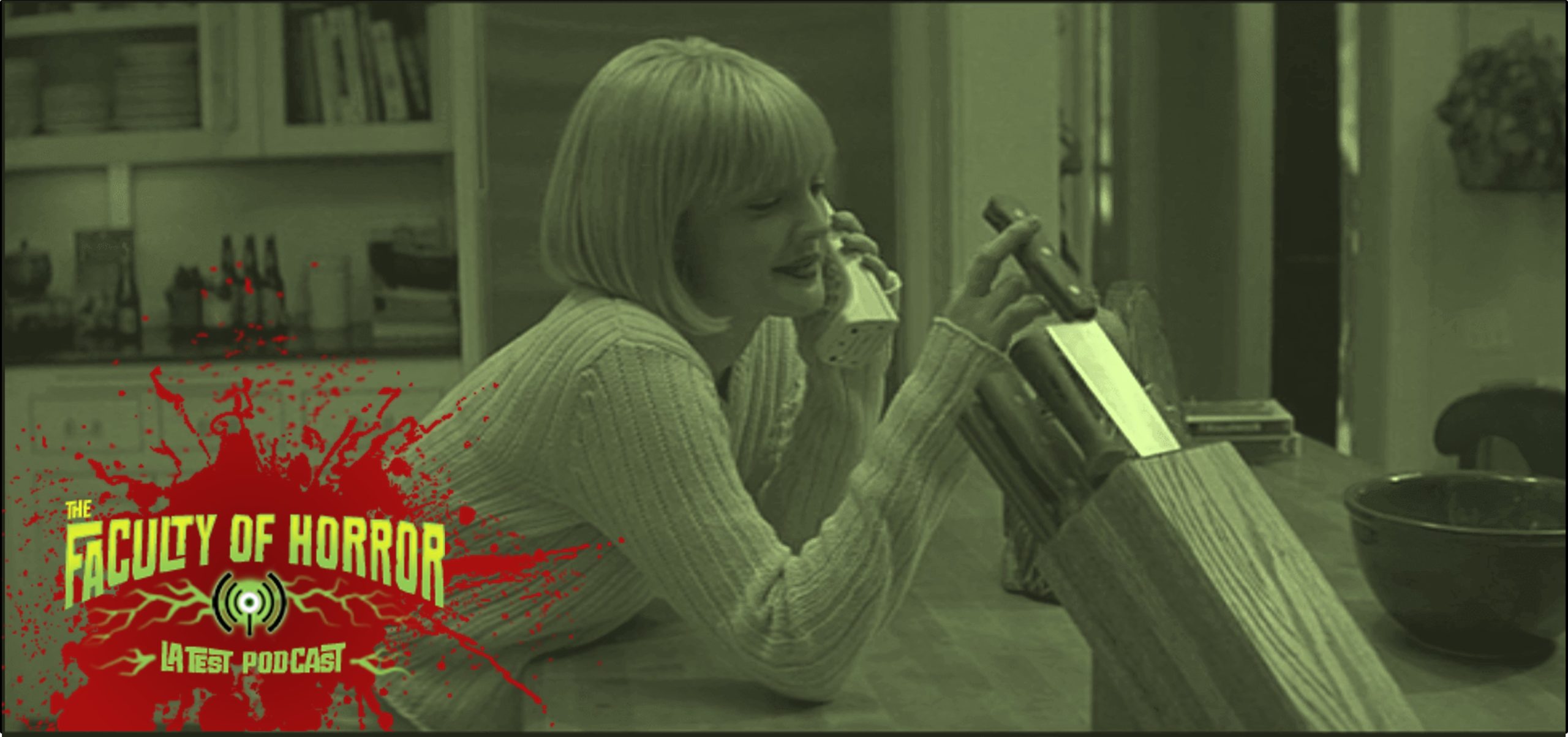Do you like scary movies? Because Wes Craven’s Scream sure does! In this episode, Andrea and Alex tackle the game-changing film, discussing its origins, impact and legacy.
Class of 2021 Merch is here! Original art by Slutfocate
REQUIRED READING
Scream. Dir. Wes Craven, 1996.
EXTRA CREDIT
The 1990s Teen Horror Cycle: Final Girls and a New Hollywood Formula. Alex’s book on ’90s horror with a feminist gaze.
Men, Women and Chain Saws. Carol Clover’s treatise on gender in modern horror that coined the term Final Girl.
Columbine. Dave Cullen’s in-depth account of the Columbine shootings.
The Banality of Skeevil. Jude Ellison S. Doyle’s medium article on Skeet Ulrich’s particular brand of ’90s toxic masculinity.
Dead Blondes and Bad Mothers. Jude Ellison S. Doyle’s book on power and monstrosity.
Seventeen Magazine May 1999. Featuring Jewel on the cover, this issue contains the findings of Seventeen x Ladies Home Journal’s survey and the article, “No! 12 Ways to Make That Little Word Heard.”
Cine-limbo: The Millennial/New Age Virtual Afterlife Thriller by Linda Badley. Did Millennial teens grew up on a diet of death-denying media?
LISTEN
Right click or option-click here and choose “Save Target As”
Podcast: Play in new window | Download


I learned a good deal about some of the context of this film from Alex’s book on the 90s Teen Horror Cycle. You both took me a bit further on this podcast and, as always, I enjoy learning in the context of your podcasting chemistry! Nice comments on Freud – I tend to think of his observations as important but his theories are (to use a clinical phrase) bat-s%$! crazy. I think Carol Clover did a good job in the chainsaw book but I don’t put too much faith in Freudian readings. I did the homework and still found “SCREAM” an enjoyable film. My partner and i saw it in theaters and it holds up well. Thanks for another gem – hope you both get whatever it is you want for the holiday season (even if that is a quiet day with wines you love). I’ll be listening in the New Year (in the Gregorian sense – I start mine at Samhain). Best wishes to you!
Wes Craven’s New Nightmare was more meta than Scream, but not as good. Behind the Mask: The Rise of Leslie Gordon was like Scream in that it’s about slasher tropes because the slasher himself (rather than a screenwriter or audience, as in the metaphor in Cabin in the Woods) is such a fan of them.
Friday the 13th already had a final girl who drinks while playing strip-poker & has an affair with her boss but survives to the end. So when Scream claims that sex=death is a rule of slashers, it already brought up a seminal slasher which flouts that “rule” in its opening. I think the perception comes from conflating Friday the 13th (where the killer is motivated by the camp counselors fooling around, but the protagonist herself is no different from them) and Halloween (where the killer is just killing everyone in his path without any such motivation, and the virginal protagonist is pursued for that reason but survives because she was less distracted).
Karl Popper explained why Freud, Jung & Marx were all BS pseudo-scientists. An actual body of knowledge helps you make accurate predictions, while intellectual dead-ends like the ones created by that trio twist themselves into unfalsifiability.
My understanding is that Skeet Ulrich DIDN’T understand that he was in a comedy, and was upset that Matthew Lillard kept playing everything comedically.
Excellent points about Friday 13th and Halloween. I hadn’t thought of them in those terms.
I agree that Popper was a solid philosopher of science. I admit to my students that Jung (for certain) would never get published in psychology journals today.
I would offer perhaps that Jung is best understood as an explorer of myths and how they may affect behavior. I doubt such an endeavor could ever pass muster as “science” but that it adds considerably to learning about ourselves. Jung and Freud fell into the “physics envy” of the day (e.g., Freud’s membership in the Helmholz Society). The human mind and “heart” (not the organ) though, remain elusive to the methods of science and perhaps, like literature, that is best.